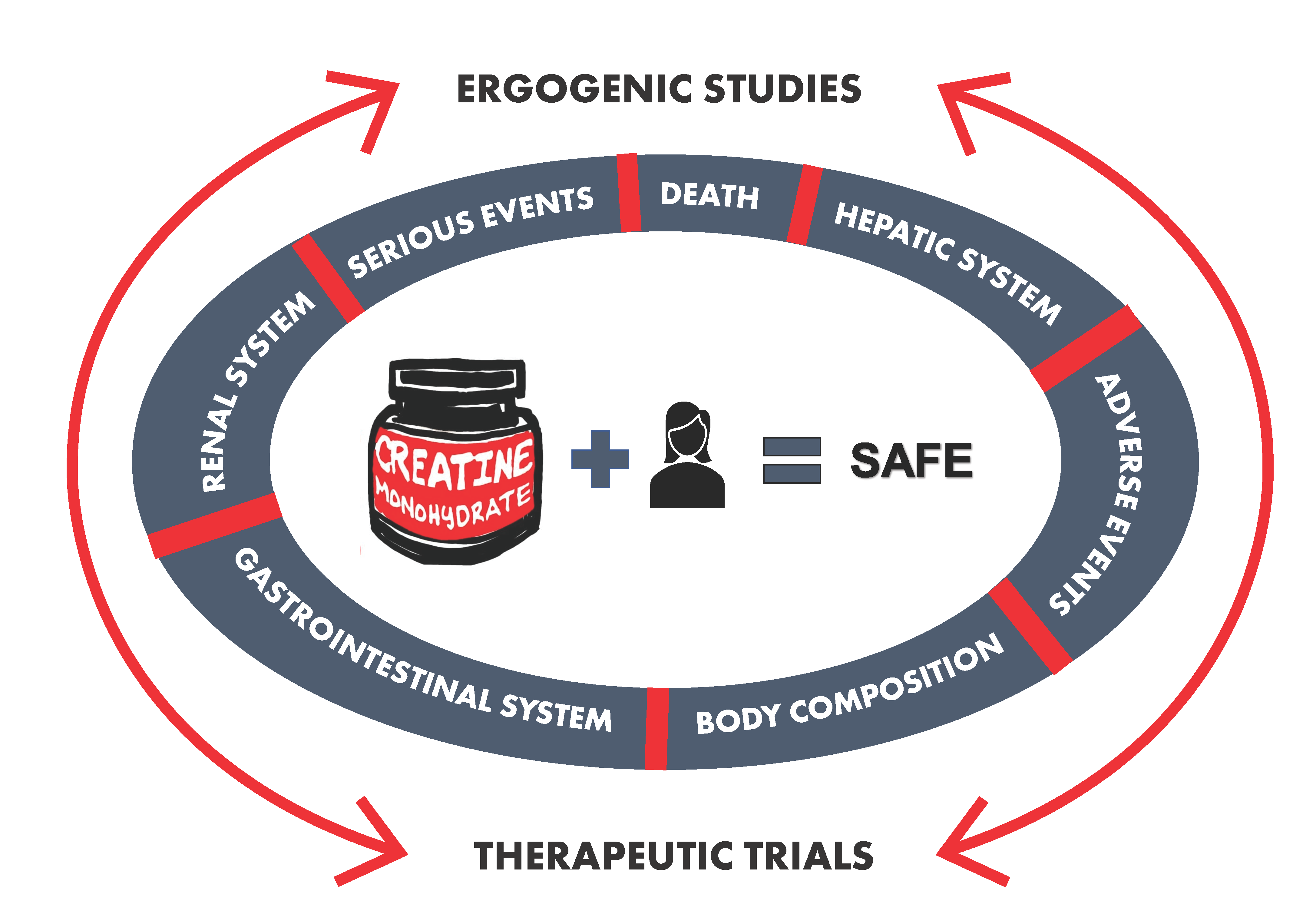Have you ever wondered whether it’s safe to take creatine and multivitamins together? Well, you’re not alone! Many people who are into fitness and overall health often supplement their diet with creatine for muscle building and performance enhancement, while also taking multivitamins to ensure they’re getting all the necessary nutrients. But are there any potential risks or harmful effects when combining these two supplements?
In this article, we will delve into the topic of combining creatine and multivitamins and whether it can be harmful to your health. We’ll explore the benefits and potential drawbacks of each supplement, as well as any possible interactions or conflicting effects that may arise when taken together.
Don’t worry, we’ll provide you with all the relevant information you need to make an informed decision about whether or not to combine these supplements. So, if you’re curious about the potential risks and benefits of taking creatine with multivitamins, keep reading to learn more!

Understanding Creatine
What is creatine?
Creatine is a naturally occurring compound found in small amounts in foods such as meat and fish, and it is also produced by the body. It plays a crucial role in providing energy to the muscles during high-intensity exercises. When taken as a supplement, creatine is typically in the form of creatine monohydrate.
How does creatine work?
Creatine works by increasing the production of adenosine triphosphate (ATP), which is the primary source of energy for muscle contractions. By increasing the amount of ATP available, creatine helps to enhance muscle strength, power, and endurance. It also promotes muscle growth and improves recovery time.
What are the benefits of taking creatine?
Taking creatine as a supplement has been shown to have several benefits, particularly for individuals who engage in high-intensity, explosive activities such as weightlifting or sprinting. Some of the potential benefits include:
- Increased muscle strength and power: Creatine supplementation has been shown to increase muscle strength, enabling individuals to lift heavier weights and perform more repetitions.
- Improved exercise performance: Creatine can enhance both anaerobic and aerobic exercise performance, allowing individuals to push harder and maintain their intensity for longer periods.
- Enhanced muscle recovery: Creatine has been found to reduce muscle damage and inflammation, leading to faster recovery and less muscle soreness after intense workouts.
- Increased muscle mass: Creatine can promote muscle growth by increasing protein synthesis and reducing muscle breakdown.
- Improved brain function: Studies have suggested that creatine supplementation may have cognitive benefits, such as improved memory and reasoning skills.
Are there any potential risks or side effects of creatine?
Creatine is generally considered safe for most people when taken within the recommended dosage. However, some individuals may experience certain side effects, including:
- Water retention: Creatine can cause water retention in the muscles, leading to slight weight gain and bloating.
- Digestive issues: Some individuals may experience gastrointestinal discomfort, such as diarrhea, when taking creatine.
- Kidney and liver damage: There is little evidence to suggest that creatine supplementation can cause kidney or liver damage in healthy individuals. However, individuals with pre-existing kidney or liver conditions should consult a healthcare professional before taking creatine.
- Dehydration: Creatine may increase the need for water consumption, so it’s important to stay properly hydrated when supplementing with creatine.
It is important to note that these potential side effects are rare and usually only occur when creatine is taken in excessive amounts or for an extended period.





93 responses to “Can combining creatine and multivitamins be harmful?”
tadalafil
tadalafil
tadalafil research
tadalafil research
purchase tadalafil
purchase tadalafil
buspar pharmacy prices
buspar pharmacy prices
kaiser online pharmacy
kaiser online pharmacy
online farmacy cialis
online farmacy cialis
viagra online purchase
viagra online purchase
online cialis florida delivery
online cialis florida delivery
where to buy over the counter female viagra
where to buy over the counter female viagra
amoxicillin and beer pharmacy
amoxicillin and beer pharmacy
tadalafil prescription
tadalafil prescription
order generic viagra online
order generic viagra online
cost of sildenafil online
cost of sildenafil online
order sildenafil online usa
order sildenafil online usa
pink viagra for women
pink viagra for women
sildenafil 10 mg price
sildenafil 10 mg price
cheap viagra pills uk
cheap viagra pills uk
cialis vs tadalafil
cialis vs tadalafil
cialis oral
cialis oral
brand name cialis
brand name cialis
cialis trial pack
cialis trial pack
sulfamethoxazole trimethoprim how long in system
sulfamethoxazole trimethoprim how long in system
gabapentin bulimia
gabapentin bulimia
metronidazole transdermal
metronidazole transdermal
valtrex misuse
valtrex misuse
tamoxifen simvastatin
tamoxifen simvastatin
is lyrica a scheduled narcotic
is lyrica a scheduled narcotic
furosemide torrinomedica
furosemide torrinomedica
lisinopril bisoprolol
lisinopril bisoprolol
metformin muadilleri
metformin muadilleri
zoo in rybelsus commercial
zoo in rybelsus commercial
rybelsus average weight loss
rybelsus average weight loss
novocare rybelsus
novocare rybelsus
911
911
link
link
list
list
gabapentin physiology
gabapentin physiology
abilify with cymbalta reviews
abilify with cymbalta reviews
weight gain on zoloft
weight gain on zoloft
a
a
flagyl klonopin
flagyl klonopin
half life of duloxetine
half life of duloxetine
escitalopram drowsiness
escitalopram drowsiness
can cephalexin treat std
can cephalexin treat std
sertraline vs lexapro
sertraline vs lexapro
keflex staph infection
keflex staph infection
ordering sildenafil online without prescription
ordering sildenafil online without prescription
difference between fluoxetine and fluvoxamine
difference between fluoxetine and fluvoxamine
spiraldynamics
spiraldynamics
Spiral Dynamics
Spiral Dynamics
ciprofloxacin-dexamethasone
ciprofloxacin-dexamethasone
cephalexin sulfa
cephalexin sulfa
how long does it take for side effects of bactrim to go away
how long does it take for side effects of bactrim to go away
is bactrim a broad spectrum antibiotic
is bactrim a broad spectrum antibiotic
vxi.su
vxi.su
how much amoxicillin for strep
how much amoxicillin for strep
effexor dose
effexor dose
gabapentin and flexeril
gabapentin and flexeril
desmopressin ddavp treatment bleeding disorders
desmopressin ddavp treatment bleeding disorders
ezetimibe principio ativo
ezetimibe principio ativo
augmentin alcohol
augmentin alcohol
cozaar beta blocker
cozaar beta blocker
citalopram hydrobromide
citalopram hydrobromide
depakote reviews
depakote reviews
quando chega contrave no brasil
quando chega contrave no brasil
diltiazem dosage for atrial fibrillation
diltiazem dosage for atrial fibrillation
diclofenac sodium topical gel
diclofenac sodium topical gel
flomax partec download
flomax partec download
another name for amitriptyline
another name for amitriptyline
aripiprazole 2mg tablets
aripiprazole 2mg tablets
allopurinol drug interaction
allopurinol drug interaction
can you take tylenol and aspirin
can you take tylenol and aspirin
does buspar make you gain weight
does buspar make you gain weight
augmentin side effects
augmentin side effects
when is the best time to take ashwagandha
when is the best time to take ashwagandha
celecoxib adverse effects
celecoxib adverse effects
baclofen for alcoholism
baclofen for alcoholism
remeron side effect
remeron side effect
acarbose spc
acarbose spc
semaglutide ingredients
semaglutide ingredients
augmentin lactose
augmentin lactose
repaglinide 2mg tab
repaglinide 2mg tab
tramadol and robaxin
tramadol and robaxin
does abilify give you energy
does abilify give you energy
can you buy protonix over the counter
can you buy protonix over the counter
aldactone spironolactone
aldactone spironolactone
ivermectin 5 mg price
ivermectin 5 mg price
synthroid mexican
synthroid mexican
sitagliptin 25 metformin 500
sitagliptin 25 metformin 500
does voltaren come in a pill form
does voltaren come in a pill form
tamsulosin time to work
tamsulosin time to work
venlafaxine hcl er 37.5 mg cap
venlafaxine hcl er 37.5 mg cap
tizanidine during pregnancy
tizanidine during pregnancy